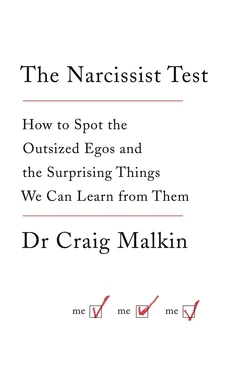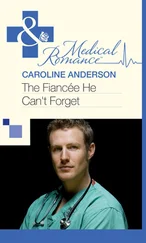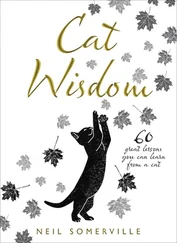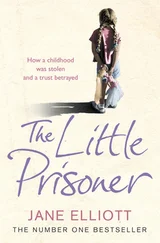But is that all narcissism is? Vanity? Attention-seeking? In psychological circles the meaning is no less confusing. Narcissism can either be an obnoxious yet common personality trait or a rare and dangerous mental health disorder. Take your pick. But do it soon, because there’s a strong sentiment among mental health researchers that it shouldn’t be considered an illness at all.
As slippery and amorphous as all these views seem to be, they all share a single assumption: narcissism is wholly destructive.
Too bad it’s wrong.
Narcissism can be harmful, true, and the Web is rife with articles and blogs from people who’ve suffered at the hands of extremely narcissistic lovers, spouses, parents, siblings, friends, and colleagues. Their stories are as heartbreaking as they are frightening. But that’s just a small part of narcissism, not the whole picture. And until all the pieces are in place, we have little hope of understanding how and why narcissism becomes destructive, let alone protecting ourselves when it does.
Today, in contrast, a surprising new view has begun to emerge, one that points to all the ways narcissism seems to help us, too. It even offers some hope for change when our loved ones, just like Narcissus, are in danger of disappearing into themselves forever.
Narcissism is more than a stubborn character flaw or a severe mental illness or a rapidly spreading cultural disease, transmitted by social media. It makes no more sense to assume it’s a problem than it would if we were speaking of heart rate, body temperature, or blood pressure. Because what it is, in fact, is a normal, pervasive human tendency: the drive to feel special.
Indeed, for the past twenty-five years, psychologists have compiled massive amounts of evidence that most people seem convinced they’re better than almost everyone else on the planet. This wealth of research can only lead us to one inevitable conclusion: the desire to feel special isn’t a state of mind reserved for arrogant jerks or sociopaths.
Consider, for example, the findings from a research tool called the “How I See Myself Scale,” a widely used questionnaire devised to measure “self-enhancement” (an unrealistically positive self-image). People who fill out the scale are asked to rank themselves on various traits, including warmth, humor, insecurity, and aggressiveness (“Do you think you’re average or in the top 25 percent, 15 percent, or 10 percent?”). In study after study in country after country, the vast majority of participants report having more admirable qualities and fewer repugnant ones than most of their peers. After reviewing decades of findings, University of Washington psychologist Jonathan Brown has concluded, “Instead of viewing themselves as average and common, most people think of themselves as exceptional [emphasis added] and unique.” This pervasive phenomenon has been dubbed “the better than average effect.”
Lest you fear that these results are evidence of a global social plague, the truth is a slightly outsized ego has its benefits. In fact, numerous studies have found that people who see themselves as better than average are happier, more sociable, and often more physically healthy than their humbler peers. The swagger in their step is associated with a host of positive qualities, including creativity, leadership, and high self-esteem, which can propel success at work. Their rosy self-image imbues them with confidence and helps them endure hardship, even after devastating failure or horrific loss.
Bosnian War survivors provide a dramatic example. Psychologists and social workers who evaluated a group of survivors for depression, interpersonal difficulties, and other “psychological problems” found that those who considered themselves better than average were in better shape than those who had a more realistic view of themselves. A similar pattern emerged among survivors of 9/11. Feeling special seems to help survivors of tragedy face the future with less fear and greater hope.
The converse appears to be true as well: people who don’t feel special often suffer higher rates of depression and anxiety; they’re also less likely to admire their partners. It’s not that their view of the world is wrong; very often it’s more accurate compared to people who think highly of themselves. But they sacrifice their happiness for that realism; they see themselves, their partners, and the world itself, in slightly dimmer light. Researchers call this the “sadder but wiser effect.”
It’s ironic in a way, the reverse of what we’ve been taught about narcissism. It’s not bad, but good to feel a little better than our fellow human beings, to feel special. In fact, we may need to. Where the trouble lies—whether narcissism hurts or helps, is healthy or unhealthy—depends entirely on the degree to which we feel special.
Narcissism, it turns out, exists on a spectrum. In moderation, it can, by inspiring our imagination and sparking a passion for life, open up our experience and expand our sense of our own potential. It can even deepen our love for family, friends, and partners. By far, the most powerful predictor of success in romantic relationships is our tendency to view our partners as better than they actually are. I call this “feeling special by association.”
Psychologists Benjamin Le of Haverford College and Natalie Dove of Eastern Michigan University recently reviewed more than 100 studies involving nearly 40,000 people in romantic relationships and found that whether a couple stayed together beyond a few weeks or months depended most strongly not on partners having winning personalities, robust self-esteem, or feelings of closeness, but on one or both people holding positive illusions—that is, they viewed their partners as smarter, more talented, and more beautiful than they were by objective standards. Believing that we’re holding hands with the most amazing person in the room makes us feel special, too.
But while moderate narcissism can enhance love, too much can diminish or even destroy it. When people grow dependent on feeling special, they become grandiose and arrogant. They stop thinking that their partners are the best or most important people in the room because they need to claim that distinction for themselves. And they lose the capacity to see the world from any point of view other than their own. These are the true narcissists, and at their worst, they also display two other traits of a so-called “dark triad”: a complete lack of remorse and a penchant for manipulation.
Surprisingly, too little narcissism can be harmful as well. Remember Echo? She’s the part of the myth we usually forget. She has no voice of her own. She’s self-abnegating, nearly invisible. The less people feel special, the more self-effacing they become until, at last, they have so little sense of self they feel worthless and impotent. I call these people echoists.
Danger, then, lurks toward the ends of the narcissism spectrum. Only in the middle, where the need to stand out from 7 billion other humans doesn’t blind us to the needs and feelings of others, lies health and happiness.
Another notion that we’ve mistakenly become wedded to is that our degree of narcissism is fixed throughout our lifetime. The fact is even healthy narcissism typically waxes and wanes, subsides and erupts, depending on our life circumstances and our age. When we’re sick, for example, we normally move up the spectrum; we’ll feel more deserving of others’ time and care, even more entitled to it, than our healthier peers and family members. Similarly at work, when we feel the need to be recognized, admired, and appreciated—say when we’re gunning for promotion—our narcissism spikes. In such instances, our hopes for the future ride on standing out from the herd. There are also specific life stages during which we need to see ourselves as special, such as pregnancy and adolescence; and others that move us toward Echo’s end of the continuum, such as caring for a newborn or deferring our dreams to help support a partner’s career. Both of these circumstances demand that we scale back our need to be in the spotlight.
Читать дальше












